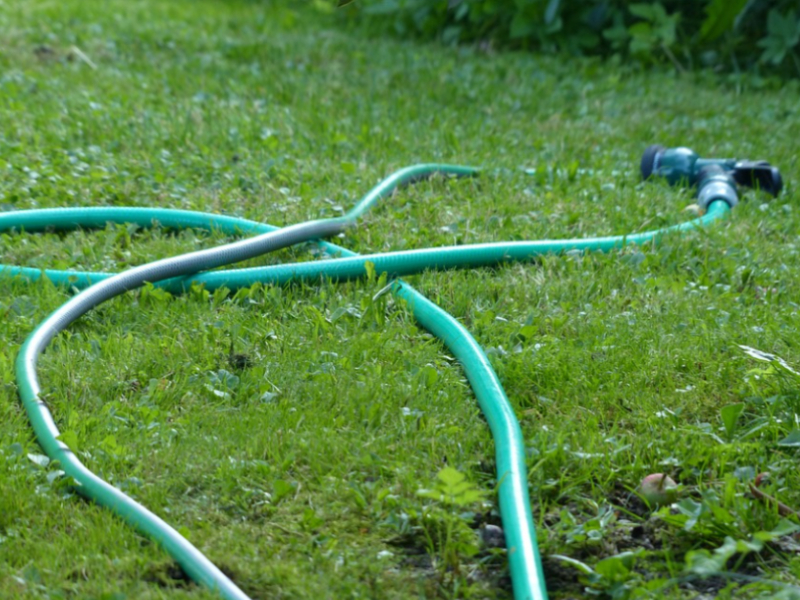Choosing the right garden hose is crucial for effectively watering your plants and maintaining your garden. A garden hose is a flexible tube used to transport water from a faucet to a spray nozzle or sprinkler system. When it comes to selecting a garden hose, there are several factors you should consider, including length, material, diameter, and flexibility.
Length
One of the most important factors to consider when choosing a garden hose is the length. The length of the hose will determine how far you can reach with it and how easily you can move around your garden. A standard garden hose is typically available in lengths ranging from 25 to 100 feet. If you have a small garden, a 25-foot hose should suffice, but if you have a large garden, you may need a hose that is longer. You can also purchase expandable garden hoses that can stretch to several times their original length.
Material
The material of the garden hose is another important factor to consider. Garden hoses can be made from various materials, including rubber, vinyl, and polyurethane. Rubber hoses are durable and can withstand high water pressure, but they can be heavy and difficult to maneuver. Vinyl hoses are lightweight and easy to handle, but they can crack and leak over time. Polyurethane hoses are a good balance between rubber and vinyl, offering durability and flexibility.
Diameter
The diameter of the garden hose is another important consideration. A garden hose with a larger diameter will allow more water to flow through it, but it will also be heavier and more difficult to handle. A garden hose with a smaller diameter will be easier to handle, but it will limit the amount of water that can flow through it. The standard diameter for a garden hose is 5/8 inch.
Flexibility
Flexibility is another important factor to consider when choosing a garden hose. A flexible garden hose will be easier to maneuver and will not kink or twist when you use it. A hose that is not flexible will be difficult to maneuver and can become damaged over time. You should look for a garden hose that has a flexible inner liner, such as a polyurethane or nylon liner, to ensure that it remains flexible and does not kink.
Kink-Resistant
Kinking is a common issue with garden hoses, especially with hoses that are not flexible. A kinked hose can significantly reduce the water flow and cause damage to the hose over time. When choosing a garden hose, look for one that is kink-resistant and has a kink-proof design, such as a spiral reinforcement or a ribbed exterior.
UV-Resistant
UV rays from the sun can cause damage to garden hoses over time, causing them to crack and leak. If you plan to store your garden hose outdoors, look for a hose that is UV-resistant and will not deteriorate under direct sunlight.
Fittings
The fittings of your garden hose are also an important consideration. The fittings are what connect the hose to the faucet and the nozzle or sprinkler. You should look for fittings that are made from durable materials, such as brass or stainless steel, and that are compatible with your faucet and nozzle.
Water Pressure
Water pressure is another important factor to consider when choosing a garden hose. The water pressure of your garden hose will affect the flow of water and the performance of your nozzle or sprinkler. Look for a garden hose that is rated for the water pressure in your area and that will work well with your watering needs.
Warranty
Finally, when choosing a garden hose, it is important to consider the warranty. A warranty can provide peace of mind and protection in the event that the hose becomes damaged or develops a leak. Look for a garden hose that comes with a warranty and that will provide protection for a reasonable amount of time.
In conclusion, when choosing a garden hose, it is important to consider the length, material, diameter, flexibility, kink-resistance, UV-resistance, fittings, water pressure, and warranty of the hose. By considering these factors, you can select the best garden hose for your needs and effectively water your plants and maintain your garden.

Q&A
What is the best material for a garden hose?
The best material for a garden hose depends on your specific needs and preferences. Rubber hoses are durable and can withstand high water pressure, but they can be heavy and difficult to maneuver. Vinyl hoses are lightweight and easy to handle, but they can crack and leak over time. Polyurethane hoses are a good balance between rubber and vinyl, offering durability and flexibility.
What length should I choose for my garden hose?
The length of your garden hose depends on the size of your garden and the reach you need. A standard garden hose is typically available in lengths ranging from 25 to 100 feet. If you have a small garden, a 25-foot hose should suffice, but if you have a large garden, you may need a hose that is longer.

 Facebook
Facebook
 Ins
Ins